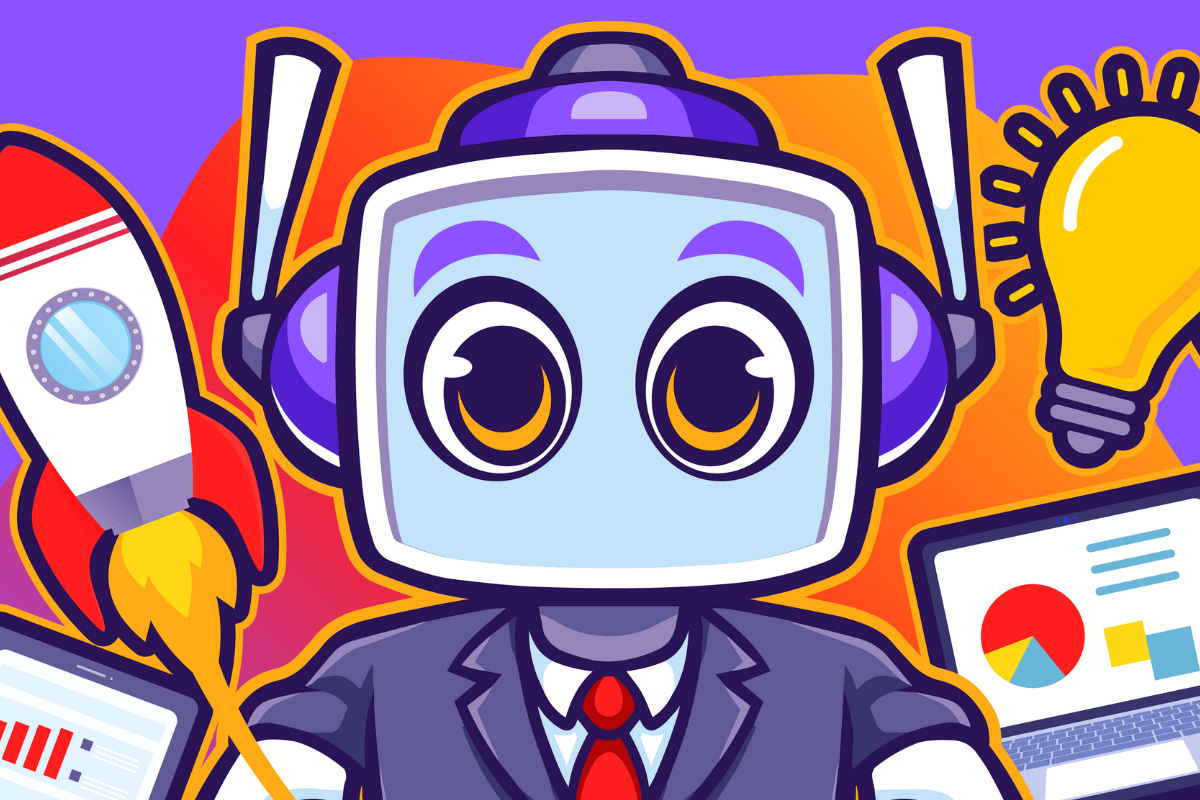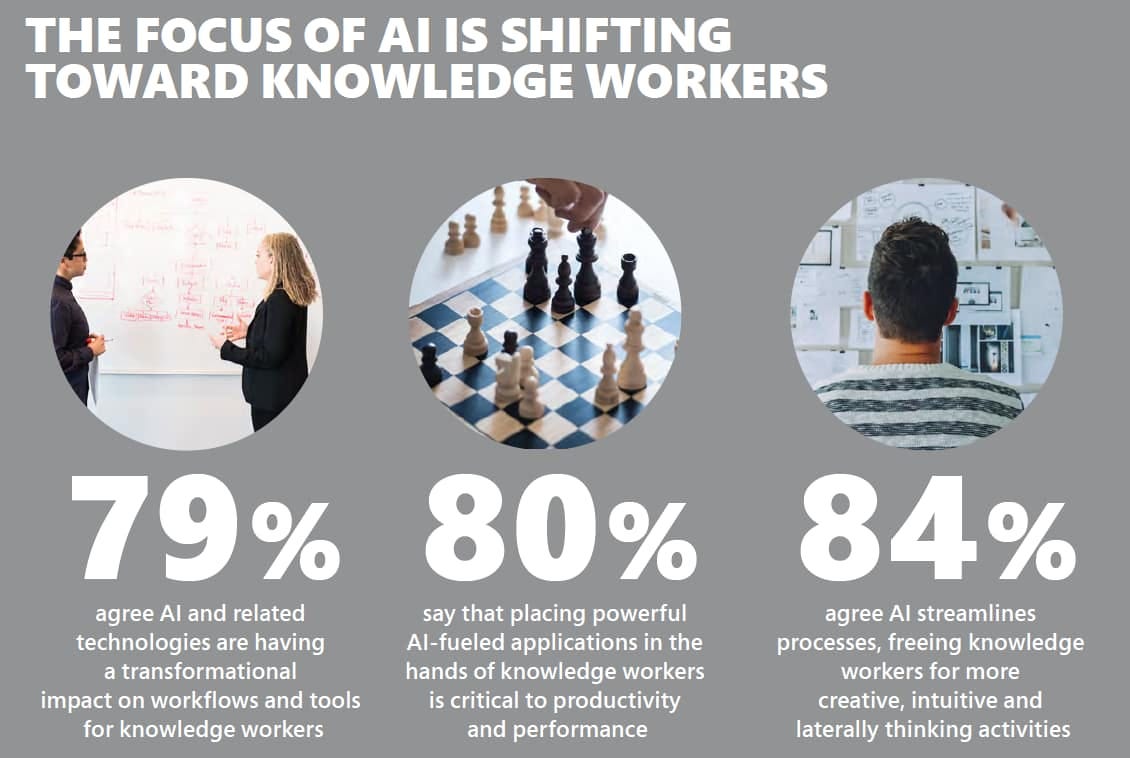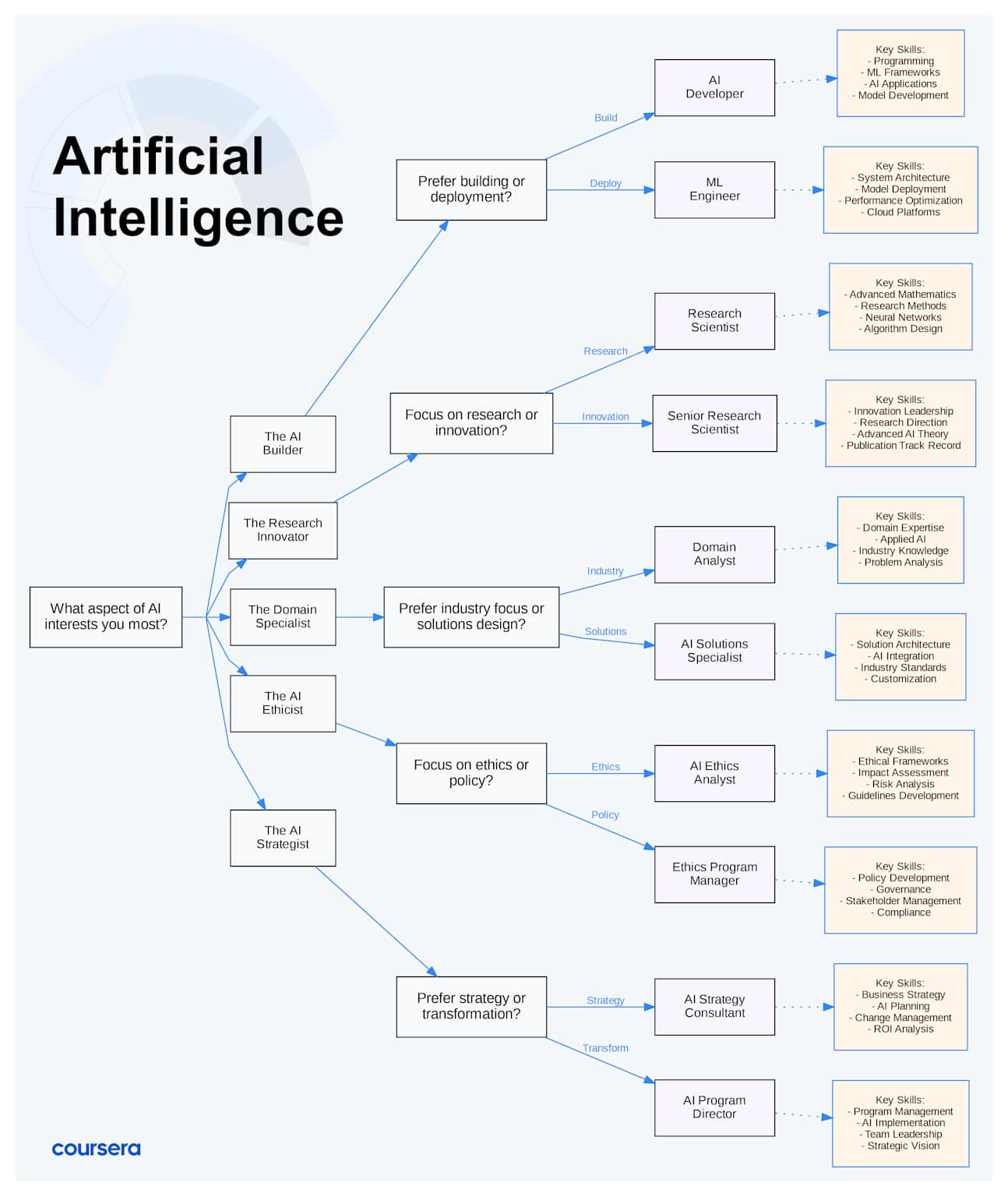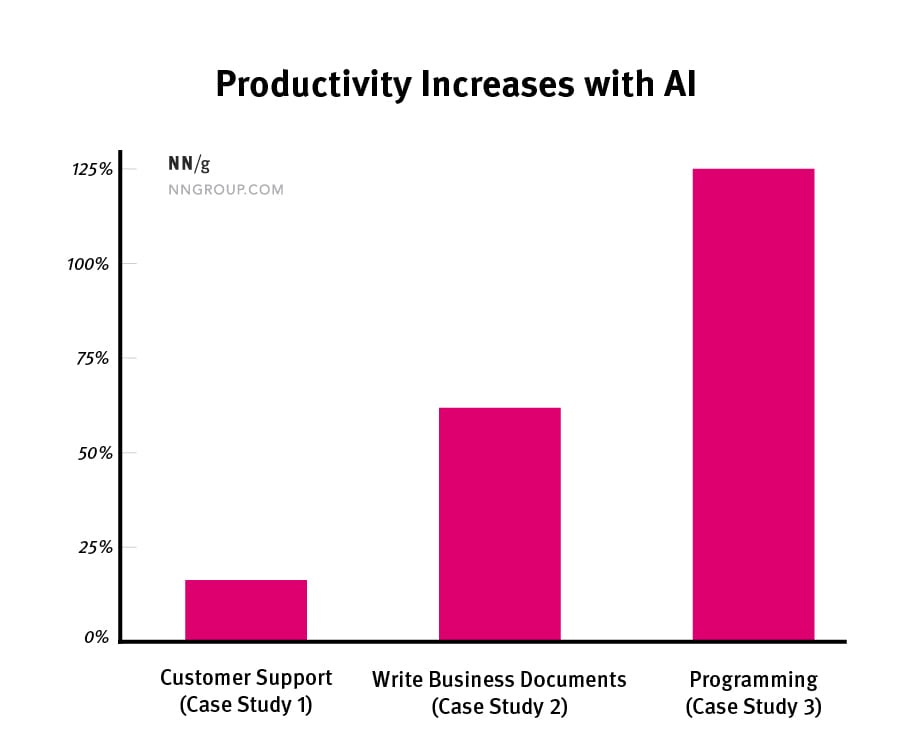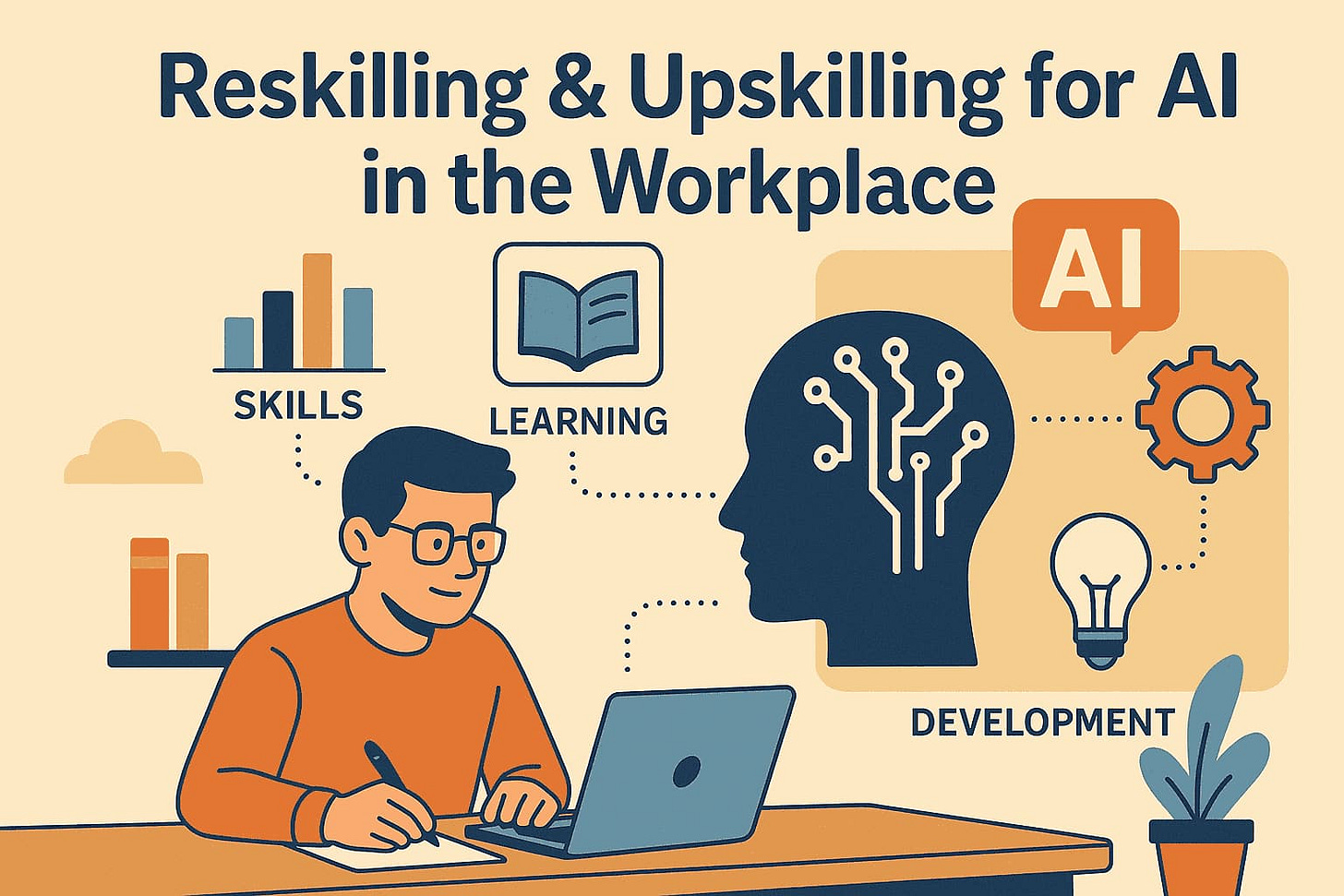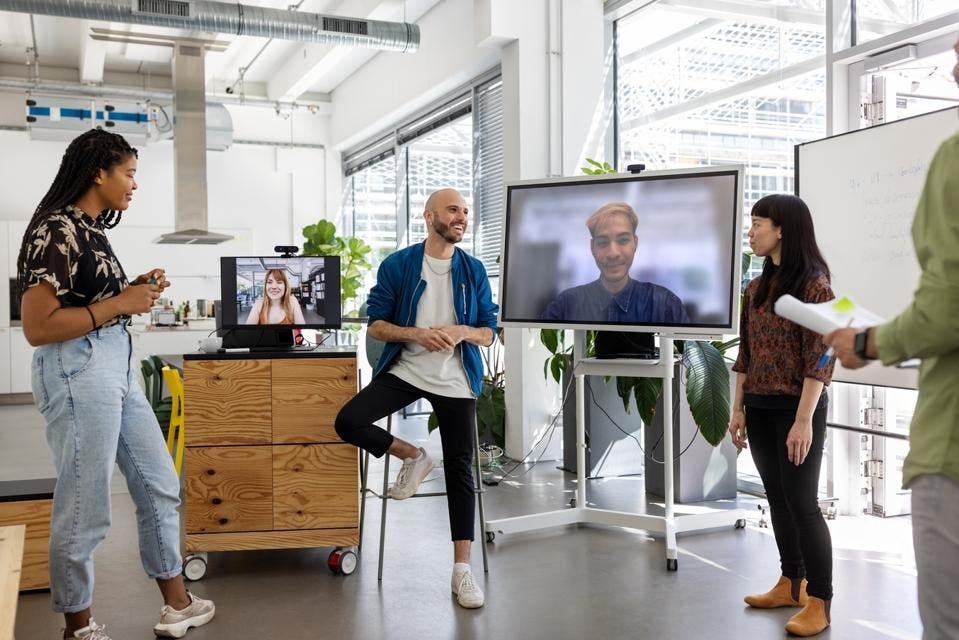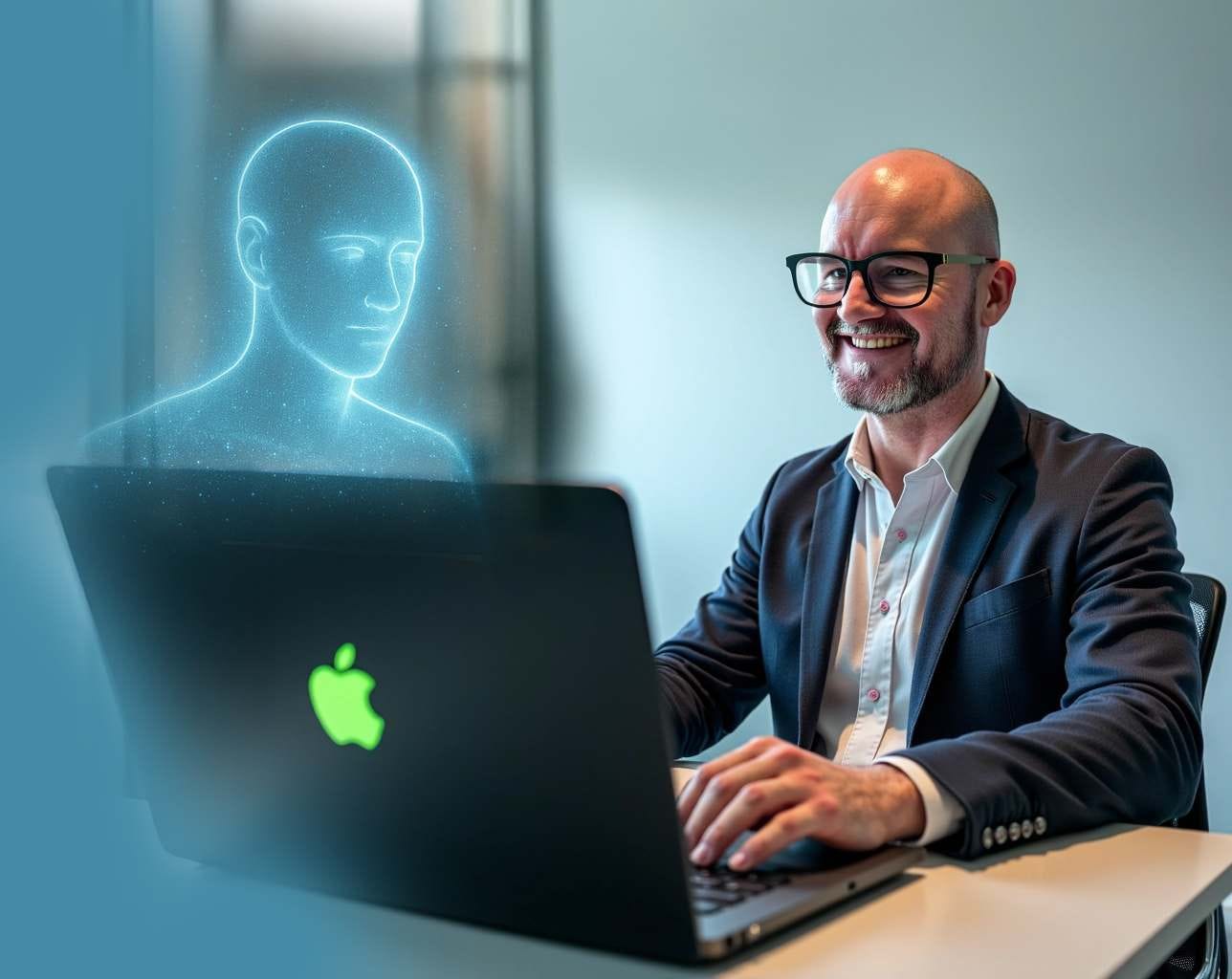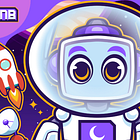Future-Proofing Careers with AI Skills
A Strategic Guide for the Modern Professional
The Human-AI Partnership
As artificial intelligence reshapes the global workforce, professionals across industries face a pivotal question: How can I ensure my career remains relevant and thriving in an AI-driven world? The answer lies not in competing with AI, but in learning to work alongside it while developing the uniquely human skills that machines cannot replicate.
The AI revolution is here, and it's transforming how we work, learn, and grow professionally. Rather than viewing AI as a threat, forward-thinking professionals are embracing it as a powerful tool for career advancement and productivity enhancement. This guide will help you navigate the changing landscape and build a future-proof career that leverages both AI capabilities and essential human skills.
Table of Contents
🕖 TL;DR
🌐 The New Career Landscape: Understanding AI’s Impact
🧠 AI‑Proof Skills: What Makes You Irreplaceable
📈 Essential AI Skills for Career Growth
🛠️ Practical Implementation Strategies
🔄 Career Adaptability Framework
🏆 Success Stories and Real‑World Applications
🚀 Getting Started: Your Action Plan
📚 Continuous Learning and Adaptation
🛣️ The Path Forward
TL;DR
Rapid AI adoption is reshaping workplaces, with AI roles growing over 56% in 2025 and median salaries nearing $157K.
Human‑centered skills—creativity, critical thinking, empathy, adaptability, and complex judgment—remain irreplaceable by AI.
Core AI competencies include prompt engineering, system literacy, data analysis, basic machine learning understanding, and ethics awareness.
Effective implementation begins by targeting specific tasks, leveraging existing AI tools, and fostering human‑AI collaboration.
Career resilience hinges on staying informed of industry trends, proactively upskilling, and maintaining curiosity through experimentation.
Real‑world examples—from AI‑driven hiring at Unilever to GitHub Copilot’s coding gains—illustrate successful AI integration.
A structured action plan involves assessing your AI proficiency, selecting appropriate learning resources, building an AI portfolio, and engaging with professional communities.
Continuous learning and adaptation ensure your skills remain relevant as AI technologies evolve.
The New Career Landscape: Understanding AI's Impact
The workplace transformation is happening faster than many anticipated. Organizations worldwide are rapidly adopting AI technologies, with 78% of companies reporting AI usage in 2024, up from just 55% the previous year. This surge in adoption has created unprecedented opportunities for those who understand how to harness AI's potential.
AI job growth has exploded, with a 56.1% increase in 2025 alone, building on explosive growth rates of 114.8% in 2023 and 120.6% in 2024. This isn't just about technical roles—new positions are emerging across all sectors, from AI content creators to AI ethics specialists and prompt engineers. Interestingly, design skills have now surpassed traditional technical competencies as the most in-demand qualification for AI-related positions, highlighting the growing importance of human-centered thinking in AI development.
The median salary for AI-related roles has reached $156,998 as of the first quarter of 2025, representing substantial earning potential for skilled professionals. However, it's crucial to understand that while 40% of employers expect to reduce their workforce where AI can automate tasks, they're simultaneously creating new roles that require human oversight, creativity, and strategic thinking.
AI-Proof Skills: What Makes You Irreplaceable
While AI excels at processing data and automating routine tasks, certain human capabilities remain irreplaceable. The most successful professionals in the AI era will be those who cultivate these distinctly human skills alongside their technical knowledge.
Critical Thinking and Problem-Solving
AI can analyze patterns and generate solutions, but it cannot truly think critically about complex, nuanced problems. Your ability to evaluate information, challenge assumptions, and make strategic decisions based on incomplete data remains uniquely valuable. This skill becomes even more important when working with AI outputs, as you need to assess their accuracy and applicability.
Emotional Intelligence and Empathy
Human connections, understanding emotions, and building trust are areas where AI cannot compete. Whether you're leading a team, serving customers, or collaborating with colleagues, your ability to understand and respond to human emotions is irreplaceable. This skill becomes increasingly valuable as AI handles more routine interactions, leaving humans to focus on complex relationship management.
Creative Innovation and Adaptability
While AI can recombine existing ideas in novel ways, true creativity—the ability to generate genuinely new concepts and solutions—remains a human domain. Your capacity to think outside the box, adapt to unexpected situations, and innovate in response to changing circumstances is a key differentiator in the AI age.
Complex Decision-Making and Judgment
AI can provide data and recommendations, but making complex decisions that consider ethical implications, long-term consequences, and human factors requires human judgment. Your ability to weigh multiple factors, consider stakeholder impacts, and make decisions in ambiguous situations is invaluable.
Essential AI Skills for Career Growth
To thrive in an AI-enabled workplace, you need to develop both technical AI literacy and the skills to work effectively with AI systems. These capabilities will help you leverage AI tools while maintaining your unique value as a human professional.
Prompt Engineering
Perhaps the most immediately valuable AI skill is prompt engineering—the ability to communicate effectively with AI systems to get desired outcomes. This skill is commanding impressive salaries, with some prompt engineers earning up to $375,000 annually. Learning to craft clear, specific prompts that guide AI systems toward useful outputs is a foundational skill that applies across industries.
AI Literacy and System Understanding
You don't need to be a computer scientist, but understanding how AI systems work, their capabilities, and their limitations is essential. This includes knowing when to use AI tools, how to interpret their outputs, and when human intervention is necessary. This literacy helps you make informed decisions about AI integration in your work.
Data Analysis and Interpretation
AI systems work with data, so understanding how to analyze, interpret, and present data insights is crucial. This includes knowing how to clean and prepare data for AI systems, interpret AI-generated analytics, and communicate findings to stakeholders who may not have technical backgrounds.
Machine Learning Fundamentals
While you may not need to build AI systems from scratch, understanding basic machine learning concepts helps you work more effectively with AI tools. This includes knowing about training data, model limitations, and how to evaluate AI system performance.
Ethics and Bias Awareness
As AI systems become more prevalent, understanding their ethical implications and potential biases is crucial. This includes recognizing when AI outputs might be biased, understanding privacy implications, and ensuring AI systems are used responsibly in your organization.
Practical Implementation Strategies
Successfully integrating AI into your career requires a strategic approach that focuses on augmenting your capabilities rather than replacing them. The most effective professionals start small, focus on clear objectives, and gradually expand their AI usage as they gain experience.
Start with Clear Objectives
Begin by identifying specific, time-consuming tasks where AI can provide immediate value. Rather than trying to implement AI everywhere, focus on areas where you can measure clear productivity gains. For example, using AI to draft initial versions of documents, analyze large datasets, or generate creative ideas for projects.
Use Pre-Built Tools First
Before considering custom AI solutions, explore the growing ecosystem of user-friendly AI tools. Platforms like ChatGPT, Claude, and Gemini offer powerful capabilities without requiring technical expertise. Many productivity tools now include AI features that can enhance your existing workflows.
Focus on Human-AI Collaboration
The most successful AI implementations create partnerships between human expertise and AI capabilities. Use AI to handle routine tasks, generate initial drafts, or process large amounts of information, while you focus on strategy, creativity, and relationship management. This approach maximizes the strengths of both human and artificial intelligence.
Measure and Iterate
Track the impact of AI tools on your productivity and work quality. Studies show that employees using generative AI save an average of 1.75 hours per day, with some reporting up to 40% improvement in efficiency. Use these metrics to identify what's working and where you can expand AI usage.
Career Adaptability Framework
Career adaptability—your ability to adjust and thrive in changing professional environments—is perhaps the most crucial skill for the AI era. This framework helps you build resilience and readiness for continuous change.
Concern: Stay Aware of Industry Trends
Actively monitor how AI is affecting your industry and role. Subscribe to relevant newsletters, join professional communities, and attend conferences to stay informed about emerging AI applications and their potential impact on your career path.
Control: Take Ownership of Your Learning
Don't wait for your employer to provide AI training. Take initiative in developing your AI skills through online courses, experimentation with AI tools, and hands-on projects. This proactive approach ensures you're always ahead of the curve.
Curiosity: Continuously Explore New Applications
Maintain a curious mindset about AI's potential applications in your work. Experiment with new tools, try different approaches, and be willing to learn from both successes and failures. This curiosity drives innovation and keeps your skills current.
Confidence: Build Skills Through Practice
Develop confidence in using AI tools through regular practice and experimentation. Start with low-stakes projects to build familiarity, then gradually apply AI to more important tasks as your skills and confidence grow.
Success Stories and Real-World Applications
Organizations across industries are already demonstrating the transformative potential of AI when implemented strategically. These examples show how professionals and companies are successfully integrating AI to enhance productivity and create new opportunities.
Recruitment and Talent Management
Companies like Unilever have revolutionized their hiring processes using AI, reducing initial screening time by 75% while improving hiring quality. Their AI-powered video interview assessments analyze candidates' communication skills and cultural fit, helping reduce unconscious bias in hiring decisions.
Customer Service Enhancement
IBM's Watson AI assistant handles routine HR queries, providing instant answers to employee questions about benefits, policies, and procedures. This automation frees human HR professionals to focus on strategic initiatives and complex employee issues that require empathy and judgment.
Programming and Development
GitHub Copilot and similar AI coding assistants have shown remarkable productivity gains, with some developers reporting up to 125% improvement in coding efficiency. These tools handle routine coding tasks while developers focus on architecture, problem-solving, and creative solutions.
Content Creation and Marketing
AI tools are enabling marketing professionals to create content at scale, generate initial drafts, and personalize communications. However, human creativity, strategy, and brand understanding remain essential for effective marketing campaigns.
Getting Started: Your Action Plan
Building a future-proof career with AI skills requires a structured approach that balances immediate practical applications with long-term strategic development. Here's your roadmap for getting started.
Assess Your Current Position
Begin by evaluating your current AI literacy and identifying areas where AI could enhance your work. Look for repetitive tasks, data analysis opportunities, or creative projects where AI assistance could provide value.
Choose Your Learning Path
Select learning resources that match your current skill level and career goals. Google AI Essentials offers foundational training, while platforms like Coursera and edX provide more comprehensive courses. Focus on practical applications rather than theoretical concepts.
Start Experimenting
Begin using AI tools in your daily work. Start with simple applications like using ChatGPT to brainstorm ideas or improve writing, then gradually expand to more complex use cases. Document what works and what doesn't to guide your learning.
Build Your AI Portfolio
Create examples of how you've successfully used AI in your work. This portfolio demonstrates your AI literacy to current and future employers while helping you track your progress and identify areas for improvement.
Join AI Communities
Connect with other professionals who are exploring AI applications in your industry. Online communities, professional associations, and local meetups provide opportunities to learn from others and stay updated on emerging trends.
Continuous Learning and Adaptation
The AI landscape evolves rapidly, so commit to continuous learning. Set aside time each week for experimenting with new tools, reading industry updates, and practicing your AI skills. This ongoing investment ensures your capabilities remain current and relevant.
The Path Forward
The AI revolution represents both a challenge and an unprecedented opportunity for career growth. By developing the right combination of AI skills and uniquely human capabilities, you can position yourself not just to survive but to thrive in this new landscape.
Success in the AI era isn't about becoming a programmer or data scientist—it's about becoming an AI-literate professional who can leverage these powerful tools while bringing irreplaceable human value to your work. The professionals who master this balance will find themselves at the forefront of innovation, productivity, and career advancement.
The future belongs to those who can bridge the gap between human creativity and artificial intelligence. By starting your AI journey today, you're not just future-proofing your career—you're positioning yourself to lead in the exciting new world of human-AI collaboration.
Remember, the goal isn't to compete with AI but to collaborate with it. As you develop these skills, you'll discover that AI doesn't replace human potential—it amplifies it. Your unique combination of emotional intelligence, creativity, critical thinking, and AI literacy will make you indispensable in the workforce of tomorrow.
Sources:
Autodesk AI Jobs Report 2025 - Comprehensive analysis of AI job growth and skill demand across Design and Make industries, highlighting the shift toward human-centered skills in AI roles.
World Economic Forum Future of Jobs Report 2025 - Global perspective on AI's impact on employment, automation risks, and emerging job categories, with insights into workforce transformation trends.
Harvard Business School AI Implementation Study - Research on generative AI's impact on highly skilled workers, showing 40% productivity improvements and the importance of human-AI collaboration.
PwC Global AI Jobs Barometer 2025 - Analysis of AI's economic impact, wage premiums for AI skills, and industry-specific transformation patterns across global markets.
IBM Institute for Business Value AI Workforce Study - Insights into reskilling needs, with findings that 40% of the workforce requires reskilling within three years due to AI adoption.
Content was researched with assistance from advanced AI tools for data analysis and insight gathering. 


